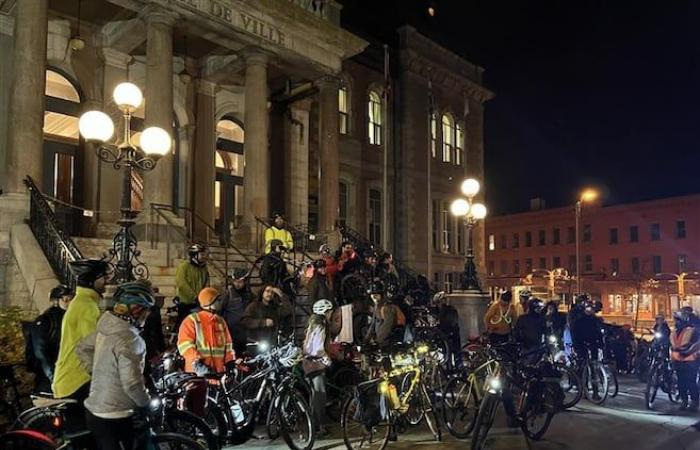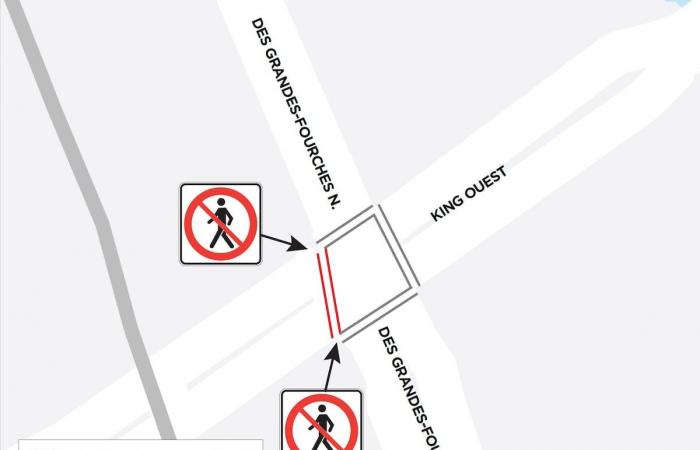About forty of them made the trip by bike from the University of Sherbrooke to city hall, shortly before the November 19 session, to request additional safety measures for winter cycling. .
“When cycle paths are not well maintained in winter, it is in the street that the bicycles end up, endangering both cyclists and motorists,” argued their spokesperson Jacob Buisson during the period questions, speaking of the abandonment of the pilot project as a “setback” for the utilitarian practice of cycling.
Most of the cycling network maintained as a priority last winter was deployed around Lac des Nations. (Maxime Picard/Archives La Tribune)
He called on his advisor in the University district, Paul Gingues, who was among those who voted to end the pilot project. The latter recognized a “difficult decision” and explained that he could not renew the project in the face of the “fuzzy” reports, according to him, which were provided to the council.
Mr. Gingues also reminded his interlocutor that this debate had already been resolved at city hall. “Coming and coming and coming like that, maybe it’s worse,” he commented.
Mr. Buisson shared before the session that he had little hope of seeing the City turn around this year, but that his group mainly aimed to raise awareness among Sherbrooke residents and to advocate for better maintenance of cycle paths in winter. following. In the meantime, “we are going to cycle in winter as much as we can,” he assured.
The visibility action was supported by the La Déraille bicycle cooperative and the Student Coalition for an Environmental and Social Shift (CEVES).
Cyclists mobilize for winter cycling in Sherbrooke (Rémi Léonard/La Tribune)
Disruption of mobility on Grandes-Fourches
Another issue was also raised Tuesday evening at Sherbrooke city hall by a cyclist regarding the changes announced by the City at four intersections in the city center. According to Ariane Lafontaine, the removal of a crossing on rue des Grandes-Fourches at rue King poses a serious problem for the mobility of cyclists and pedestrians coming from the new roundabout who would like to go to the Maxi or to the SAQ.
The pedestrian crossing west of the intersection of King Street West and Rue des Grandes-Fourches will be removed, the City announced last week. (City of Sherbrooke)
The configuration at this location already makes it difficult for users to coexist since there is no space between the sidewalk and the car lane. By removing this crossing, we would force pedestrians and cyclists to use the other three crossings successively, an unrealistic option, according to Ms. Lafontaine.
Responding that she herself used this intersection by bike, council president Laure Letarte-Lavoie indicated that possible solutions would be considered with municipal teams, without immediately specifying the option that could possibly be chosen.







